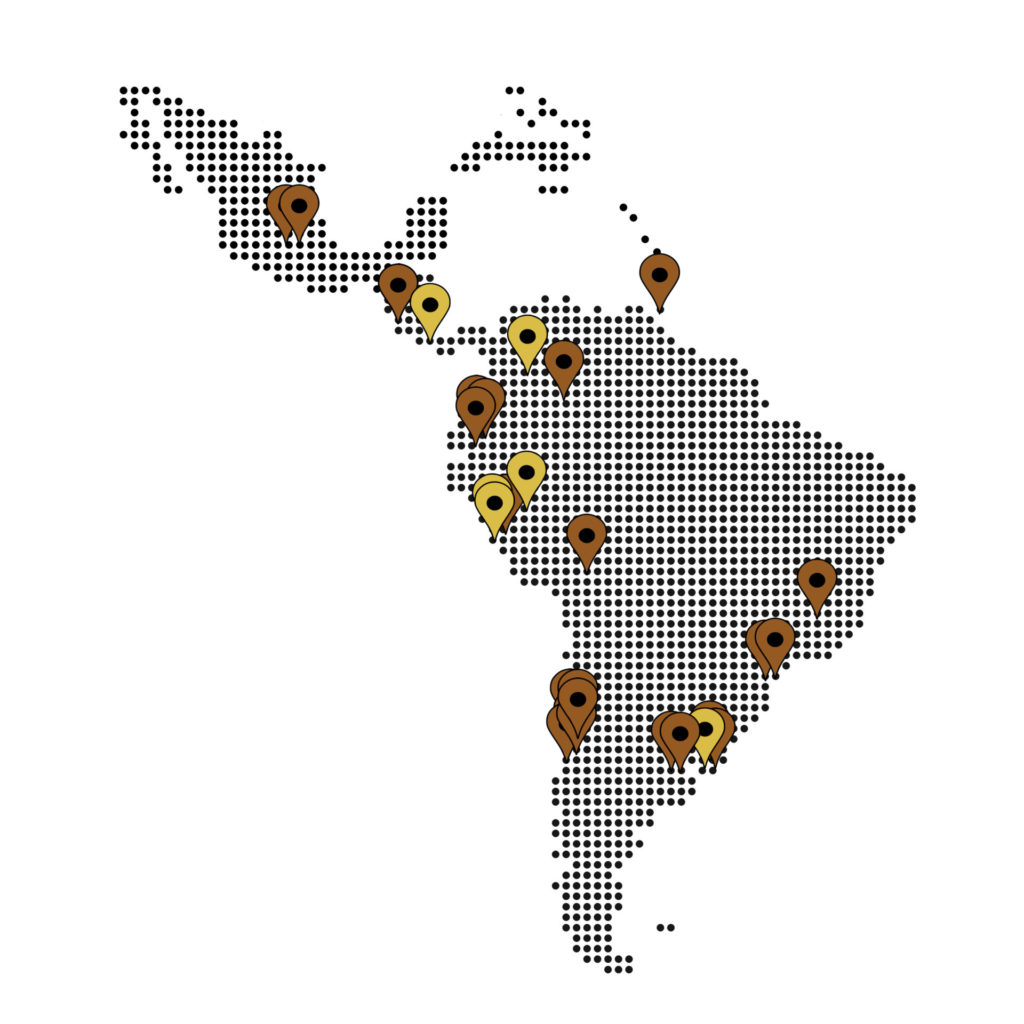Latin American Capacity Building Workshop: Adapting Teaching and Learning Techniques in the New Normal


Adapting Teaching and Learning Techniques in the New Normal
At the start of the COVID-19 pandemic, classes at business schools went online almost immediately due to the restrictions for meeting in person. Some institutions transitioned smoothly as they already had experience in digital delivery, while others had to learn on the spot.
Adaptando las Técnicas de Enseñanza y Aprendizaje en la Nueva Normalidad
Al comienzo de la pandemia de COVID-19, las clases en las Escuelas de Negocios pasaron a ser en línea casi de inmediato debido a las restricciones para reunirse en persona. Algunas instituciones hicieron la transición sin problemas ya que tenían experiencia en la enseñanza en línea, mientras que otras tuvieron que aprender sobre la marcha.


With the new normal, changes in the preferences and perceptions of students and companies have become evident. Online delivery has become pervasive and permeates all kinds of programmes and courses, as it has proved to be effective in multiple circumstances, offering new learning opportunities and providing increased flexibility in the learning process than traditional formats. However, online learning can be challenging for traditional programme designers, teachers and instructors, who must be trained in new teaching and communication techniques, and the situation is aggravated by the fact that newer generations of students have a different approach to using digital technology.
Con la nueva normalidad se han hecho evidentes los cambios en las percepciones y preferencias de los estudiantes y de las empresas. La enseñanza en línea se ha generalizado y se aplica para todo tipo de programas y cursos, ya que ha demostrado ser eficaz en múltiples circunstancias, ofreciendo nuevas oportunidades de aprendizaje y brindando una mayor flexibilidad en el proceso de aprendizaje con respecto a los formatos tradicionales. Sin embargo, el aprendizaje en línea puede ser un desafío para los diseñadores de programas, docentes e instructores tradicionales, quienes deben recibir capacitación en nuevas técnicas de enseñanza y comunicación, y la situación se ve agravada por el hecho de que las nuevas generaciones de estudiantes tienen un enfoque diferente para usar la tecnología digital.
This workshop will be about how teaching and learning techniques have evolved and will showcase some successful examples of institutions in Latin America and Spain that have put the enhancement of online delivery at the centre of their strategy. This workshop is of particular use for programme coordinators/managers who are responsible for the design of their programmes, as well as faculty who teach on blended or online programmes.
Este taller tratará sobre cómo han evolucionado las técnicas de enseñanza y aprendizaje y mostrará algunos ejemplos exitosos de instituciones en América Latina y España que han puesto la mejora de la enseñanza en línea en el centro de su estrategia. Este taller es especialmente útil para los directores/coordinadores de programas que son responsables del diseño de programas académicos, así como para los profesores que enseñan en programas “blended” o en línea.

All LATAM Capacity Building Workshop Videos
Meet the speakers
Camelia is a global entrepreneurial leader, advisor, and non-profit board member with over 25 years of experience in value creation, strategic innovation, and P&L management at organisations in Europe, Latin America, and the USA.
Camelia is a full Professor, Dean of Executive Education and Strategic Innovation, and Chair of the Center for Inclusive and Sustainable Leadership at INCAE, a leading business school in Latin America.
Camelia leads the digital transformation at the institution through INCAE online, an initiative designed and launched in partnership with Emeritus, a global leading detect player. Presently more than 7,000 students are taught in the areas under her leadership each year.
Carlos is one of the Association’s International Advisors and a member of the International
Accreditation Advisory Board (IAAB) at AMBA & BGA. He joined in 1999 and his main responsibilities are related to the international accreditation and the development of the Association’s activities in
Latin America and the Caribbean.
Before joining AMBA & BGA, Carlos held academic and administrative positions at business schools in France, Germany and Belgium and undertook several educational projects in the UK. In addition, he accomplished assignments related to postgraduate management education in Japan, Morocco and Argentina. For many years, he took part in projects of the European Union for the development of business education in the Caribbean.
Ricardo obtained his PhD from Ramon Lull University, where he also completed his MBA. He also completed a Master’s in International Purchasing from the IQS School of Management. His teaching fields include financial analysis, management control systems, and supply organizations design.
He’s currently the Director of MBA and international programs at the Adolfo Ibañez business school, and director of the MGEM at the Ramon Llull University of Barcelona. Author of various academic publications and consultant in more than 30 international companies.
Upcoming LATAM Capacity Building Workshop
All LATAM Capacity Building Workshop Videos
Read Business Impact
Latin America

How emerging economies can inform the D&I debate
Cristina Vélez Valencia, Dean of Universidad EAFIT in Colombia, explores how business education in emerging economies can offer insights and solutions for thinking through global diversity and inclusion (D&I) challenges

The new normal of collaboration: the view from Latin America
The deans of the School of Management and Social Sciences at Universidad ORT Uruguay, the Universidad de San Andrés Business School in Argentina and Getulio Vargas Foundation (FGV) EAESP in Brazil discuss new possibilities for Business Schools to partner with others and widen their reach

Moving beyond Covid-19: Inter Metro, Puerto Rico
Inter Metro’s Antonio Fernós Sagebién looks at how the Puerto Rican institution’s offerings and plans for the immediate future have been affected by the pandemic
Total number of Latin American business schools that hold BGA membership

Want to get in touch?
For questions about BGA membership, please contact:
Victor Hedenberg
Membership Director











